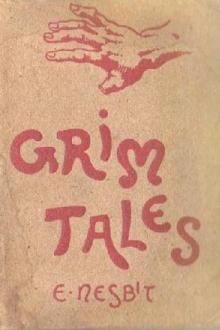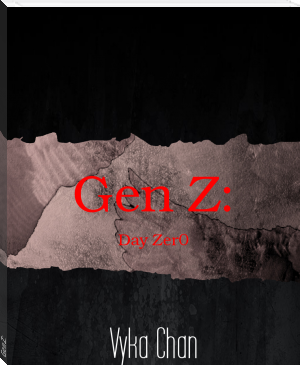Callisto 2.0, Susan English [i love reading .TXT] 📗

- Author: Susan English
- Performer: -
Book online «Callisto 2.0, Susan English [i love reading .TXT] 📗». Author Susan English

1
DEDICATIONI dedicate this work to you, Ximena. If it weren’t for you, I could never have imagined a world so full of hope, beauty, joy, and love.
2
NOTE TO THE READER
Thank you, dear reader, for choosing my book!
For more information, and to meet the Shambhala crew, please visit
www.shambhalasaga.com.
3
My body trembled as I waited to for the connection to sync up, stomach queasy.
When my father answered the holochat, I was stunned. He avoided holochatting like the plague—claiming it was like talking to an avatar and not an actual person. We hadn’t seen each other in over a year, not since the last time I visited my parents.
“Hi, Dad.” My voice was barely more than a whisper.
“Hi, Sweet Pea. How are you?”
“Good,” I lied, forcing myself to speak louder.
“Your mother is worried about you. She’s been watching the news, and wants you to come home.”
“I know. We talked earlier today—” almost adding before I knew what was happening but stopped myself. I took a ragged breath. “What they’re saying in the newsfeeds about us, it’s not true.” Gritting my teeth, I braced myself for his retort.
“If you say so, then I believe you.”
My jaw went slack—this was not the barbed response I’d come to expect from a man who usually took every opportunity to berate me for putting my selfish interests above those of the family. I peered closely at his image, searching for the gruff, sullen man whose greatest disappointment was a daughter who had abandoned him, had chosen her studies over her own father. Instead, the person looking back at me was a frail old man, his face trusting, almost childlike. I remembered when I was younger, when he was younger; when he taught me to ride a bike, how he held me in his arms after a bad fall, knees bloody and tears streaking my face. He had loved me. I was loved.
I couldn’t tell him, couldn’t say what needed to be said. There was so much, too much. I had been angry with my parents for many years, I realized then, and had buried that anger deep inside me. No, not angry—hurt. Hurt that they didn’t understand me, that they couldn’t accept me for who I was. But then again, I hadn’t accepted them, either. Now that it was too late, all those years of pain washed away, replaced by a profound sadness. I desperately wanted to change the subject.
“How’s the kitchen remodel going?” I managed, keeping my expression neutral. It was the most difficult thing I had ever done in my life.
“It’s going beautifully. Your mother convinced me to hire a few young men to help.
You know my back’s not so good.”
“I know, Dad. Is Mom there?”
“No, Sweet Pea, she’s taking a walk with her friends.”
Eyes burning, I knew it was only a matter of seconds before I broke down, and didn’t want him to see. I wanted this, our very last conversation, to be easy. I would send them a holomessage, explain everything. There was still a little bit of time left. “I have to go, Dad. I love you so much. Tell Mom I love her.”
“We love you, too, Sweet Pea.”
I ended the connection and burst into heaving sobs.
4
The phone app on my holographic wrist computer chirped. I hesitated before answering, because the caller hadn’t been automatically identified, just a seemingly random string of letters and symbols. Brow furrowed, I stared at the tiny screen. An encryption protocol? Why would anyone calling me need to use encryption? Probably just a glitch in the server.
“Hello?” I answered tentatively.
“Is this Callisto Collins?” the voice said.
“Yes. Who’s calling, please?”
“My name is Diana. I’m from the foundation Portal al Porvenir. Perhaps you’ve heard of us?”
I had a vague recollection of reading something about the Foundation—a privately funded scientific organization—in a journal, but couldn’t call up any details. “No, not really. Sorry.”
“Do you have a few minutes to talk?” Diana’s lilting voice was intriguing.
I shrugged, though since this was a voice-only communication, it was an empty gesture. “Okay.”
“The Foundation has an opening for a physicist with your specialty.”
My chair groaned in protest as I sat up straighter. “My specialty?” Had I heard her correctly? It was surprising that any private research facility would be interested in me.
My area of expertise, faster-than-light (ftl) space travel, was, at that time, a rather esoteric field. There had been a flurry of interest seventy-five or so years earlier, but not much progress had been made since then, and there weren’t many of us willing to dedicate our careers to the pursuit, considered by most to be a dead end. But I had never been much for conventional wisdom.
“According to our research, you are an ideal candidate for the position.”
“An ideal candidate?” My brain was having a difficult time following what Diana was saying. I finished my postdoc back in November of the previous year, and since then had been putting out feelers, exploring my future prospects, but Portal al Porvenir hadn’t even appeared on my radar. At the beginning of January, I received one job offer—the solitary fruit of all my labor—to work for my government at the National Physics Laboratory. Having completed the interview process the week before, I just needed to let them know my decision. The deadline was fast approaching, with only a couple more days to make up my mind. The government lab was very good, there were no other offers on the table, and my field was so specialized that my only reasonable choice was to accept … until the phone call.
“Yes,” said Diana, bringing me back from my mental digressions. “We’re prepared to offer you the job, based on your prior research and publications.”
This time, my chair squeaked its objection as I shifted, torso ramrod straight. I 5
blinked several times, staring at the wall, a dirty pink color, paint peeling in great patches like a bad sunburn, several cracks near the ceiling, a parting gift from the most recent earthquake. “What type of company did you say this is?”
“We’re a small scientific organization. Our twin goals are to advance pure scientific research and to support Earth-friendly technologies.”
“Small?” I smirked. Probably a startup with no money. And pure research? Yeah, right.
As if she could see my expression through cyberspace, Diana added, “I can assure you that the Foundation’s laboratory has state-of-the-art equipment, and the funding to pursue any line of research.”
My eyes widened. This had to be some kind of practical joke.
Apparently sensing my hesitation, she said, “Why don’t we meet tomorrow to discuss the details? We can have lunch. Do you know the restaurant VegeNation? It’s in the middle of downtown L.A.”
I had heard of it—a small but well-known organic restaurant, unusual in that the waitstaff were actual humans instead of robots. “I can find it.”
“Excellent! Shall we say one p.m.?”
“Okay, why not?” It all sounded too good to be true, but I had nothing to lose, and, though the possibility seemed remote, everything to gain.
That night, I did an internet search on Portal al Porvenir, but couldn’t find much. In fact, it was curious how little information there was. The Foundation did have a website, though with few details—more propaganda than substance. From what I could glean, they indeed supported pure scientific research, as well as the development of green technologies. A team page was conspicuously absent on the site, as was any listing of people associated with the organization anywhere on the world wide web, so, although Diana seemed to know plenty about me, or at least about my career, she hadn’t mentioned her surname, and with nothing more than a first name, I couldn’t do any research on her.
◆◆◆
On the day of our meeting, I caught the metro to the city center, then walked the few blocks to the restaurant. By noon I was sitting at a table near a window overlooking a small, surprisingly lush garden, an uncommon but welcome feature in the inner city.
I had my notebook, as always, and tried to do some work while waiting, but, restless and distracted, it was impossible to concentrate. The organization’s interest in my specialization was a glimmer of light at the end of a dark tunnel. I tried my best to tamp down my growing excitement, and to keep my expectations low, because at that moment I still didn’t know much about the Foundation or the position, and had my doubts that it was even real, but hope springs eternal. Outside, in the serenity of the garden, bees flitted from flower to flower, moving with such purpose and clarity, at ease 6
with their role in the Universe.
The soft tinkling of the bell attached to the front door of the restaurant pulled my attention away from the window, and I glanced at my wrist computer: one o’clock on the dot. The chatter and clinking of dishes and silverware faded, replaced by silence. A woman stood at the entrance; all eyes were on her. I, too, stared. It wasn’t her looks that caught my attention, even though she was stunning, with dark eyebrows framing her luminous eyes, made even more striking thanks to her astonishingly long, dark lashes, visible even from where I was sitting. No,





Comments (0)